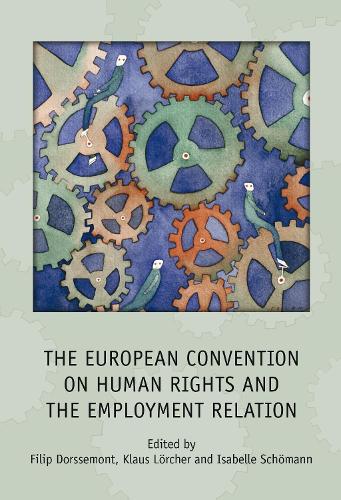
The European Convention on Human Rights and the Employment Relation
(Hardback)
Publishing Details
The European Convention on Human Rights and the Employment Relation
By (Author) Filip Dorssemont
Edited by Klaus Lrcher
Edited by Isabelle Schmann
Bloomsbury Publishing PLC
Hart Publishing
25th November 2013
United Kingdom
Classifications
Professional and Scholarly
Non Fiction
344.2401
Physical Properties
Hardback
482
Width 156mm, Height 234mm, Spine 22mm
862g
Description
The accession by the European Union to the European Convention on Human Rights (ECHR) has opened up new possibilities in terms of the constitutional recognition of fundamental rights in the EU. In the field of employment law it heralds a new procedure for workers and trade unions to challenge EU law against the background of the ECHR. In theoretical terms this means that EU law now goes beyond recognition of fundamental rights as mere general principles of EU law, making the ECHR the 'gold standard' for fundamental (social) rights. This publication of the Transnational Trade Union Rights Working Group focuses on the EU and the interplay between the Strasbourg case law and the case law of the Court of Justice of the European Union (CJEU), analysing the relevance of the ECHR for the protection of workers' rights and for the effective enjoyment of civil and political rights in the employment relation. Each chapter is written by a prominent European human rights expert and analyses the case law of the European Court of Human Rights (ECtHR), and also looks at the equivalent international labour standards within the Council of Europe (in particular the (Revised) European Social Charter), the International Labour Organization (ILO) (in particular the fundamental rights conventions) and the UN Covenants (in particular the International Covenant on Economic, Social and Cultural Rights) and the interpretation of these instruments by competent organs. The authors also analyse the ways in which the CJEU has acknowledged the respective ECHR articles as 'general principles' of EU law and asks whether the Lisbon Treaty will also warrant a reassessment of the way it has treated conflicts between these 'general principles' and the so-called 'fundamental freedoms'.
Reviews
...the publication of this volume is very timely. It offers a comprehensive analysis of the normative profile of the Convention across the range of relevant labour rights. ...The quality across these chapters is high, and it is evenly distributed. It provides an unrivalled overview of the current state of play under the Convention, and in so doing this volume deserves to be on the shelf of any academic or practising labour lawyer. -- Alan L Bogg * Yearbook of European Law *
Author Bio
Filip Dorssemont is Professor of Labour Law at the 'Centre interdisciplinaire droit, entreprise et socit' of the Unversit catholique de Louvain. He teaches as a guest lecturer at the Universit Saint-Louis de Bruxelles. He is a member of the Remarklab Group. Klaus Lrcher is former Legal Adviser to the European Trade Union Confederation (ETUC) and former Legal Secretary of the Civil Service Tribunal of the European Union. Isabelle Schmann is senior researcher at the European Trade Union Institute (ETUI).
